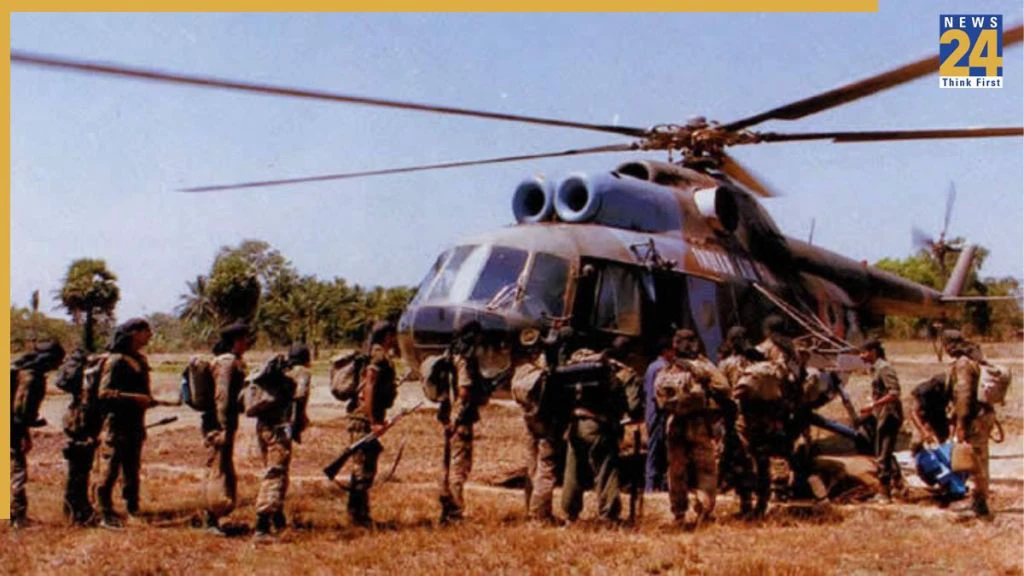Most Indians have heard of Operation Bluestar, Operation Sindoor and Kargil Day, but very few know about Operation Pawan, one of India’s toughest and least-spoken military missions.
The scale of this operation can be understood from one figure alone: 1171 Indian soldiers lost their lives and more than 3500 were injured. For the first time since the mission, the Indian Army is officially honouring these fallen heroes.
Operation Pawan was India’s first large-scale military deployment outside the country after Independence. It took place in Sri Lanka between 1987 and 1990. On 25 November, Army Chief General Upendra Dwivedi will pay tribute to the martyrs of this mission at the National War Memorial, the first time the top leadership will formally commemorate them.
What was Operation Pawan?
The operation began after the Rajiv Gandhi government decided to send the Indian Peace Keeping Force (IPKF) to Sri Lanka to help end the civil conflict between the Tamil and Sinhalese communities. The aim was to disarm militant groups like the LTTE and support a peace agreement. However, soon after the IPKF arrived, the LTTE broke the accord and turned its weapons against Indian soldiers.
From October 1987 to March 1990, Indian troops fought intense battles in dense jungles and hostile terrain. The fighting was so fierce that many soldiers could not even retrieve the bodies of their comrades. Among the bravest was Major Ramaswamy Parameswaran, who was awarded the Param Vir Chakra posthumously after being killed in action on 25 November 1987.
No official remembrance, until now
For decades, Operation Pawan had no official remembrance day. Only a handful of veterans, widows of martyrs and family members quietly gathered each year to offer tributes on their own. While Sri Lanka built a memorial for the IPKF in Colombo, India never formally recognised the mission’s sacrifices.
That changes today. For the first time, the Army Chief and Vice Chief will lay wreaths at the memorial, as veterans and families of the martyrs witness long-awaited recognition. As one veteran noted, ‘After 38 years, we are finally being acknowledged. It brings a sense of peace.’
